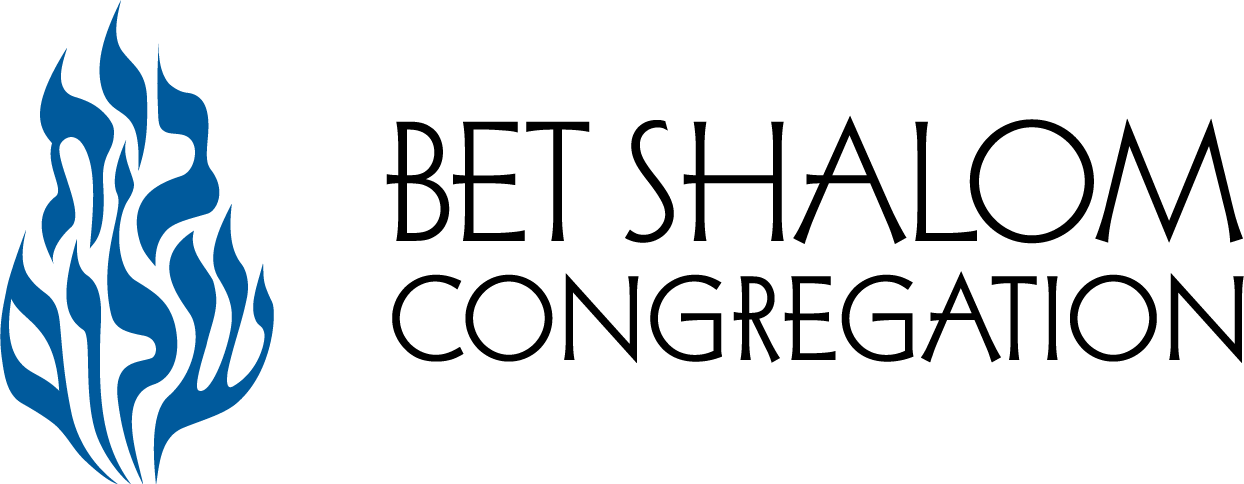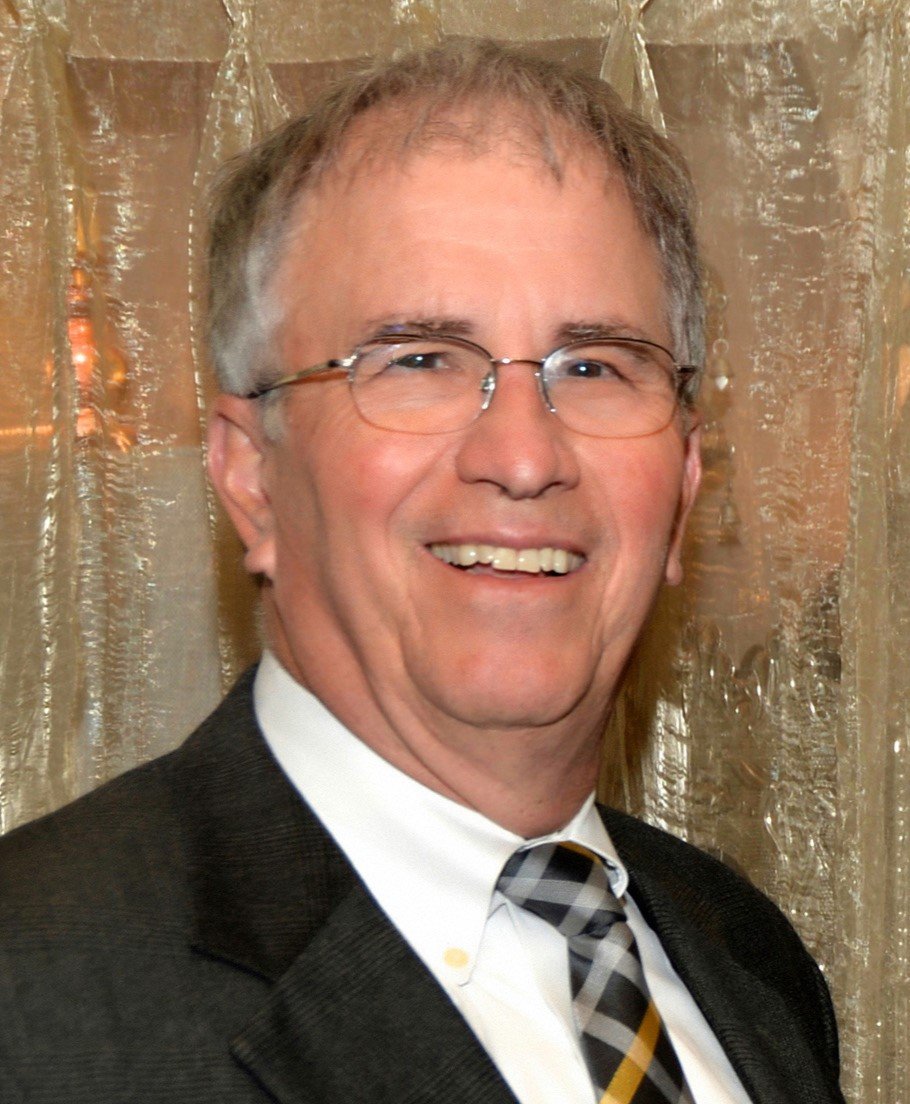Bet Shalom Endowment: Past, Present and Future
by Eric Bressler
Many Bet Shalom congregants are barely aware of the existence of the Bet Shalom Endowment (BSE). Did you know that it was started in 2005? Or that its assets have grown so that its annual distribution of $85,000 accounted for 3% of Bet Shalom's budget last year? The Endowment recently received a large legacy gift that will considerably increase the distributions in the next few years, making it even more important to Bet Shalom's financial future. This prompted me as President of the BSE to ask several other people who have been instrumental in its creation and growth to help me tell its story.
What is an Endowment?
An endowment is money that an organization accumulates and invests so that it can create a relatively steady stream of distributions to use for its operations. Usually the rest of the invested money is not used other than for ordinary investment expenses and marketing as determined by an endowment’s Board of Trustees.
Bet Shalom's current Treasurer, Dick McNeil, comments: “Bet Shalom Endowment is a separate corporation from Bet Shalom, which is also a Minnesota nonprofit corporation that was incorporated in 1981. The members of Bet Shalom Endowment are the members of Bet Shalom. So when someone becomes a member of Bet Shalom, they automatically also become a member of the Endowment. The purpose of having the Endowment be a separate legal entity is so that it has its own Board of Trustees, who are not subject to the operational financial demands faced by the Bet Shalom Board of Trustees. The Endowment’s Board of Trustees can focus on (i) building the Endowment’s assets for the long-term future support of Bet Shalom, and (ii) protecting the Endowment’s funds from being consumed by the short-term annual operating needs of Bet Shalom.”
How did the Bet Shalom Endowment begin?
The 1999 Bayit Shelanu campaign to build our Minnetonka synagogue building raised $8.5 million from $9.2 million in pledges. But that wasn't enough money to pay off the building costs, which is why Bet Shalom has a mortgage. So no money could be set aside for an endowment at that time despite our obvious need for one.
In April 2005, the Planned Giving Committee was formed, chaired by Michael Klein and me and with Dick McNeil, Tom Silver z”l, Steven Snyder and Earl Cohen as members. We decided to form the BSE to receive any gifts people wished to make, and the plans were approved at the May 2005 annual congregational meeting. We planned a Testamentary Giving campaign to fund the BSE.
Dick wrote the Articles of Incorporation, incorporated the Bet Shalom Endowment as a Minnesota nonprofit corporation, and drafted the initial bylaws. In July 2006 the Endowment received from the IRS confirmation that the Endowment was a 501(c)(3) organization. As President of the BSE, I started a brokerage account in its name at Vanguard and made the first contribution to open the account. The first Trustees of the Board of the BSE were Eric Bressler, Earl Cohen, Joel Greenwald, Susan Mansfield, Jan Schwartz and Tom Silver z”l.
Over the next five years donations to the BSE accumulated to about $60,000. During a five-year long campaign, congregants were asked to inform the Planned Giving Committee as to whether they had put the BSE in their estate plans, and at least a dozen did so.
What was the Etz Chaim Campaign?
Steven Snyder recounts the story: “When I became congregational president in 2009 I recognized the need to significantly grow the endowment to ensure Bet Shalom’s long-term financial viability. The board endorsed an endowment campaign as one of its three strategic initiatives at an August 2009 retreat facilitated by Marc Sokol and Joyce Juster. I then recruited Rob Kieval to be the chair of what became the Etz Chaim Campaign. Rob built an excellent team, including Tom Meyers and many others, aided by our consultant, Bob Evans.”
“Our team branded the campaign Etz Chaim to reflect that our endowment serves as a ‘Tree of Life’ for Bet Shalom,” says Rob, “providing an enduring source of financial support for our synagogue. Steve Carples and Dale Bluestein made critical contributions to establishing the case for giving and for generating printed and video campaign materials.
“We speak often and reverently about our founding families at Bet Shalom. True to our inclusive nature, Etz Chaim provided an opportunity for all who donated to become ‘founders of Bet Shalom’s future.’ Our vision was to have all member families participate at any level that they were able to, and our team of dedicated volunteers worked diligently to reach as many families as possible with a personal appeal.”
Tom Meyers says, “Over the next 12-18 months, the Etz Chaim committee members, working with the clergy and Bet Shalom staff, held town hall meetings, information sessions, multiple phone-a-thons, and dozens of in-person meeting with Bet Shalom families. It was a very rewarding experience to interact with so many Bet Shalom families as we were making the case for giving. It quickly became apparent that each family had a different connection to Bet Shalom and a different story, and each came to Bet Shalom at a different point in their Jewish journey. Yet beyond each story there was a common connection to Bet Shalom and its accessibility, its welcoming nature, and its open doors to all kinds of Jewish families. This was the common denominator, the need in our community that makes Bet Shalom so critical and why building an endowment that provides financial security for our congregation is so important to us.”
With the generous support of our members, Etz Chaim received pledges for cash gifts totaling about $1 million and several testamentary gift pledges. Rob transitioned out of the campaign while Tom Meyers continued to work closely with Rabbi Cohen to maintain the momentum of the campaign.
Clergy Involvement in Etz Chaim Campaign
Unlike many other congregations, our rabbis have played a significant role in fundraising, including the Etz Chaim campaign. Rabbi Cohen helped to create and write the “case” for presentations in groups and individual situations. He comments: “Having been here since the beginning, I knew every congregational family and thus participated in some solicitations. I would present the case with a personal emphasis on what the synagogue has meant to the family, reminding them of our responsibility to keep Bet Shalom strong and secure for future generations. Just as we have enjoyed the benefits, so may our children, grandchildren, and others.” Rabbi Cohen and Rabbi Locketz continue to work with committee leaders and others in meeting with members who are interested in giving to the BSE.
Major gifts to the BSE
The BSE received several gifts of $50,000-$180,000 during the Etz Chaim Campaign in 2011, the creation of the Rabbi Norman M. Cohen Honorary Rabbinic Fund in 2015, and the Comprehensive Fundraising Campaign in 2020. Two even larger testamentary gifts (via people's estate plans) received in 2019 and 2023 have interesting stories that are told by Rabbi Cohen and Tom Meyers in another article in this month's Tapestry. These demonstrate the power of legacy giving and the importance of testamentary gifts to growing the BSE.
How much is in the BSE and how have the assets been managed?
Because of the efforts of many committed volunteers and the generosity of over 200 donors, the BSE has about $3.2 million invested as of October, 2023, not including pledged testamentary gifts of about $1.5 million. Passing the $3 million mark is a considerable accomplishment of which we are immensely proud! A synagogue of Bet Shalom's size should have an endowment of $5-10 million to comfortably sustain its functions, so we need it to grow even more! For about the last 10 years the funds have been housed in RBC Wealth Management, managed passively with an investment mix of 60% equities and 40% fixed income, standard for endowments.
Who runs the BSE? Who's on the Board of Trustees?
The Board of Trustees of the BSE runs all its functions. These Board members must not be on the Board of Bet Shalom Congregation to avoid conflicts of interest. Board members serve three-year terms and are often reelected for continuity; they are unpaid positions. I have been President of the BSE since its inception, and Earl Cohen has been a Trustee since its inception as well. Earl does all the legal work of the BSE such as revisions of the Bylaws and occasional Resolutions. On behalf of the Members of the Endowment, I thank these people who have served as Trustees of the Board of the BSE: Earl Cohen, Joel Greenwald, Susan Mansfield, Jan Schwartz, Tom Silver z”l, Ralph Bernstein, Len Leder z”l, Gerry Boschwitz, Marc Sokol, Sue-Ann Garvis, Jeff Upin, Judy Mandile, John Rosenberg, Rob Kieval, Sandy Ruesewald and Joan Charnas.
What has the Board of Trustees done with the BSE?
In the first few years we dealt with various issues like gift acceptance policies and legal issues that required some revisions of the bylaws. Once the assets exceeded $500,000, we evaluated several professional management firms and chose RBC Wealth Management. This year we changed the bylaws to allow a more flexible distribution range of 3.5% - 5% of the running 3-year average of the year-end value of the BSE; previously we had used 4%. Our new initiative is a donor recognition program.
Will we have another Endowment Campaign?
This is under consideration for the near future. A new testamentary gift campaign is also a consideration as we strive to achieve the $5-10 million long-term goal for the BSE.
Rabbi Norman M. Cohen Honorary Fund:
In 2015 in honor of Rabbi Cohen’s transition to Rabbi Emeritus, the Rabbi Norman M. Cohen
Honorary Rabbinic Fund was created within the Bet Shalom Endowment to recognize the numerous
contributions Rabbi Cohen made as Bet Shalom’s Founding Rabbi. This fund helps provide funding to ensure that we can support strong rabbinic leadership for generations to come.
“As Rabbi Emeritus, my hope is that Bet Shalom continues from generation to generation
to be an all-inclusive welcoming, sacred place where study, prayer, and good deeds flourish,
providing a spiritual home for people seeking to enhance their Jewish lives and identities.
This fund will help our future generations of rabbis carry forward what we have established together.”
– Rabbi Norman M. Cohen






